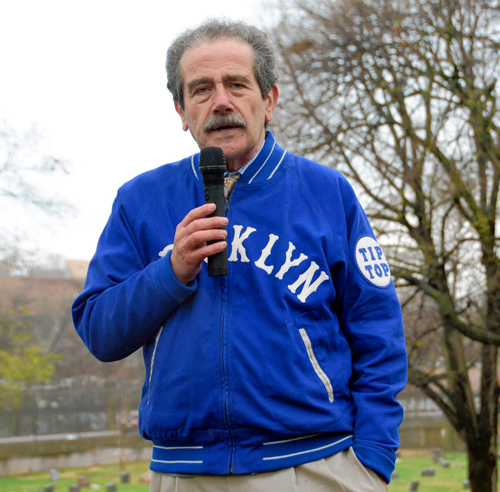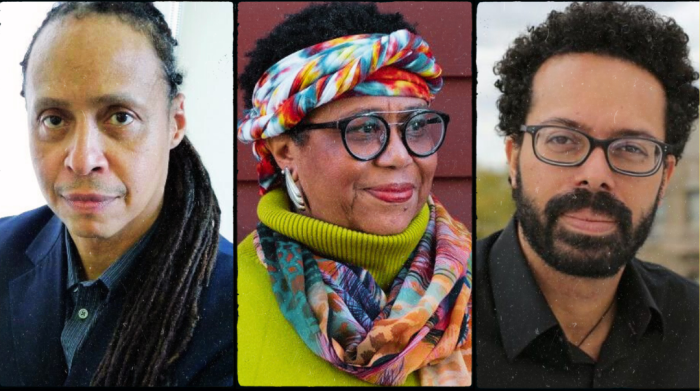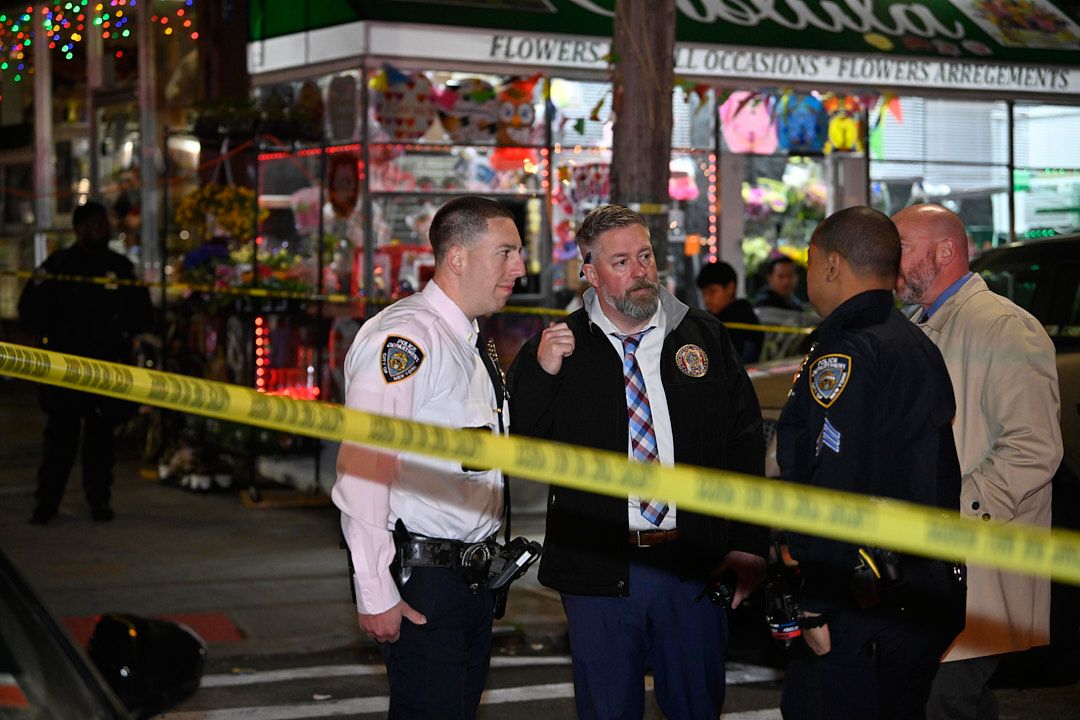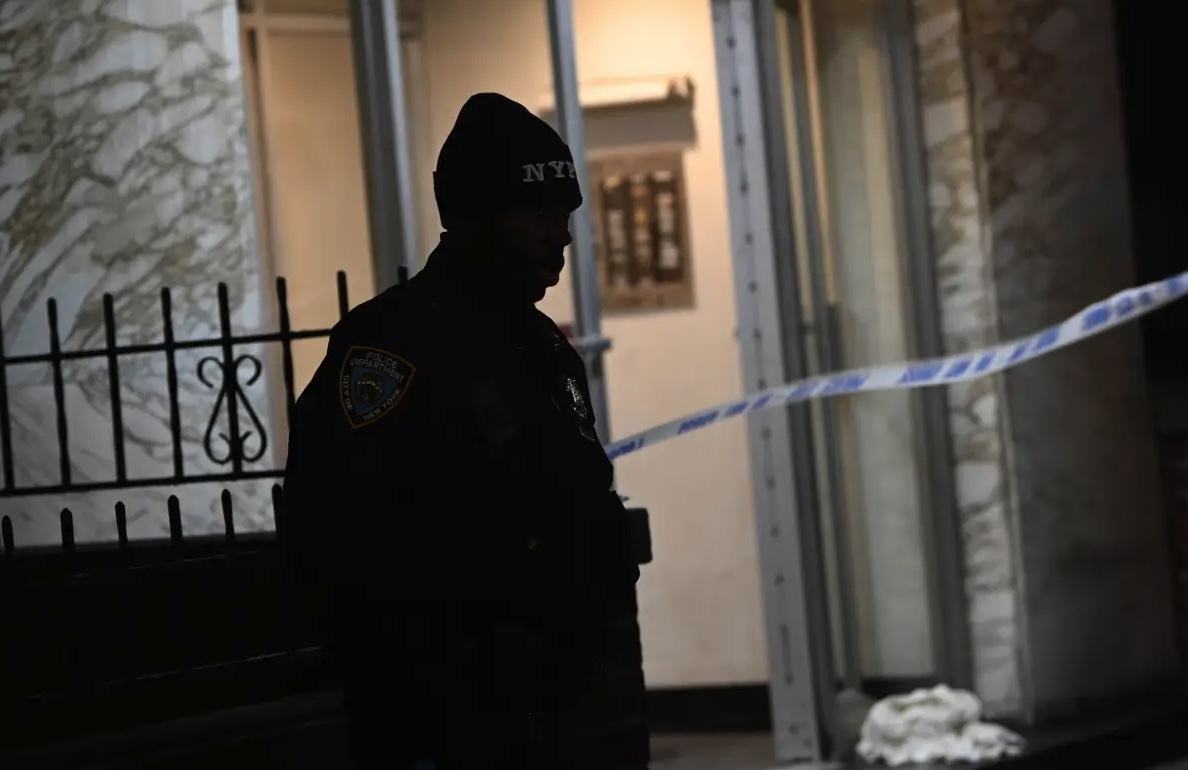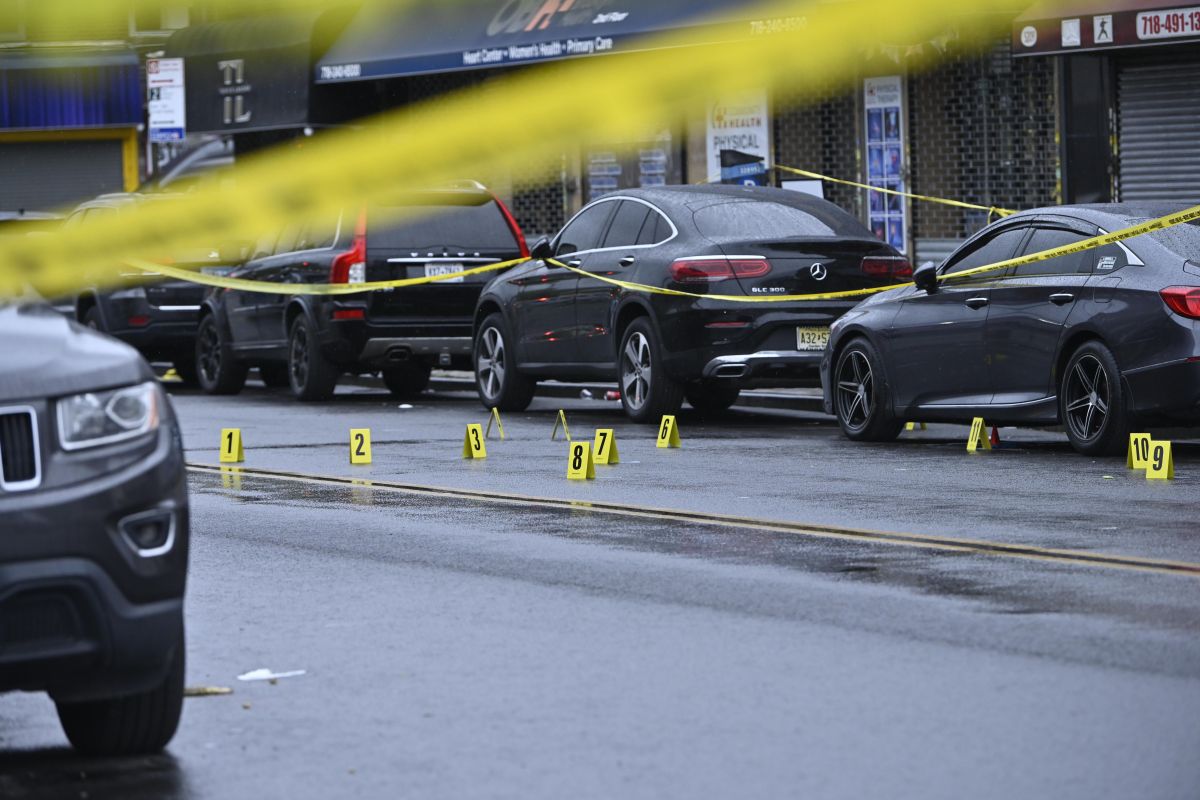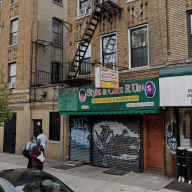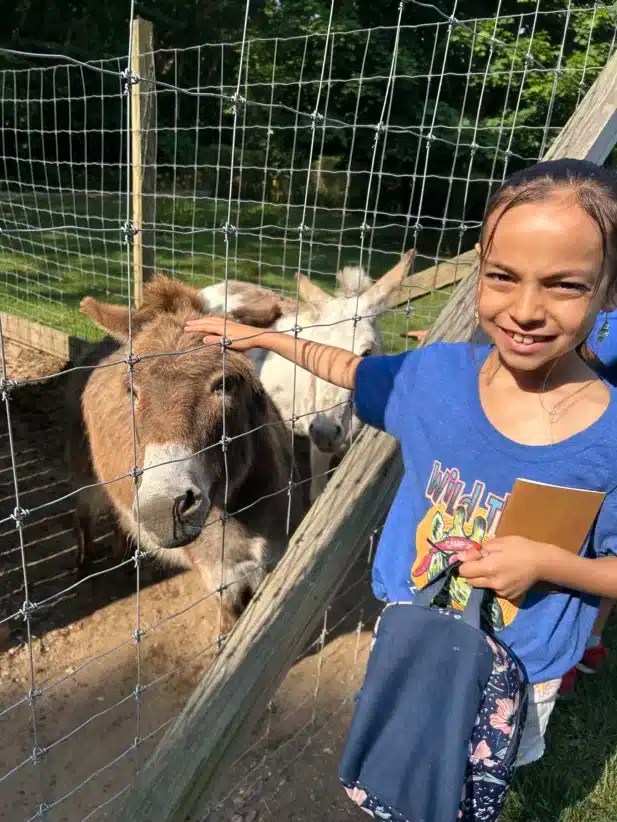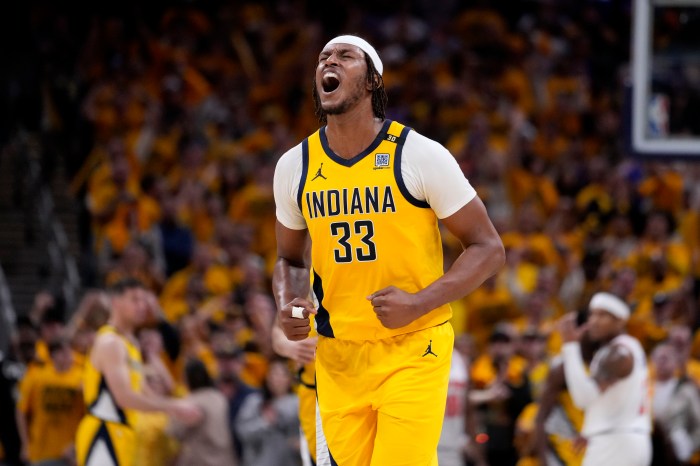A memorial to one of baseball’s most important innovators has finally been restored to its former glory.
Green-Wood Cemetery unveiled the restored monument to Jim Creighton — the seminal baseball player who pitched for the Brooklyn Excelsiors in the 1860s — on April 15, Creighton’s 173rd birthday.
Historians said the monument was as ground-breaking as the player.
“It may very well be the first baseball monument in America,” said Green-Wood historian Jeff Richman. “It’s a precursor for the idea of Monument Park at Yankee Stadium.”
Richman said the monument is a match for Creighton, who revolutionized America’s national pastime.
Creighton invented the “speedball” — grandfather of the fastball — and in doing so, shifted the game’s focus away from fielding to the showdown between pitcher and batter, Richman said.
“Before Creighton came along, the pitcher lobbed the ball for the batter to hit,” he said. “The batter could even specify where he wanted a pitch.”
Creighton changed that with a delivery so quick that game organizers brought in the so-called “father of baseball” Henry Chadwick — a fellow Brooklynite — to determine whether Creighton’s form was legal, according to Richman.

In an era of amateurs, Creighton was one of the first players paid to play, which made him a de facto professional — though the payments were made in secret, said Richman.
Like the Johnny Appleseed of baseball, Creighton led a barnstorming tour to bring baseball to rural locales, and a bevy of teams sprung up using his name as their moniker.
Some consider him baseball’s original martyr — he ruptured his spleen hitting a home run in 1862 and died days later at the age of 21, Richman said.
The cemetery, which is the final resting place for early baseball greats including Chadwick and Charles Ebbets, footed the bill to restore the monument and replace the marble baseball had that long ago vanished from atop the obelisk.
Funding came from revenue generated by the baseball-themed tours that the Green-Wood Historic Fund puts on, as well as private donations, a Green-Wood spokeswoman said.
Richman said the memorial is an important gesture for a baseball great who has received less credit than he is due.
“He is the most influential baseball player not in the hall of fame,” he said.



